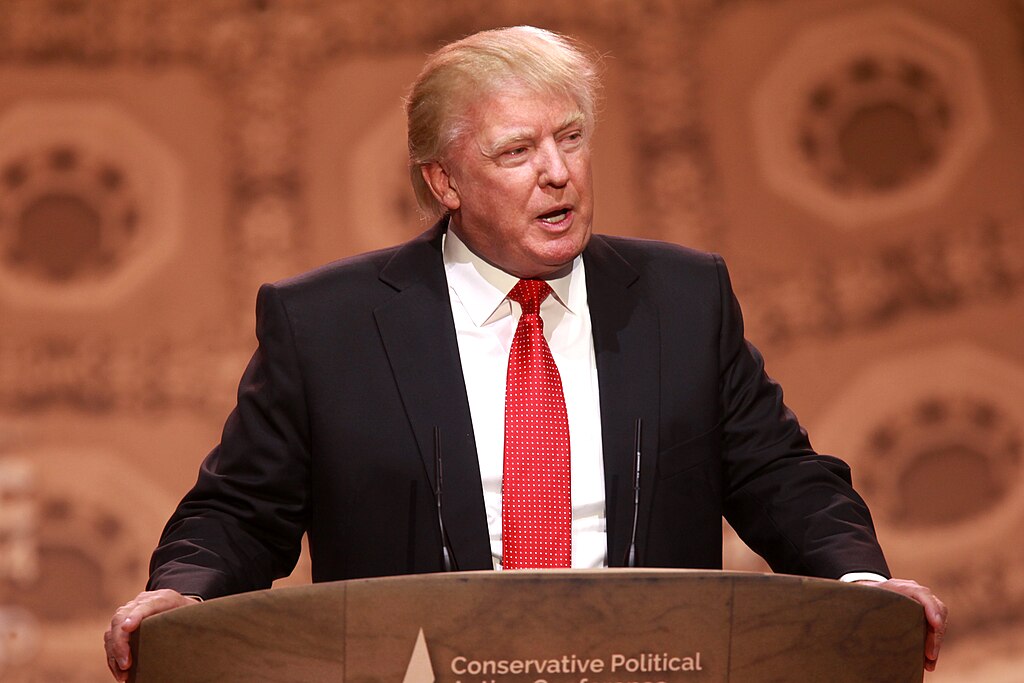President Donald Trump has announced a sweeping strategy to combat America’s opioid crisis, focusing on stricter border controls, increased law enforcement measures, and expanded treatment programs. The plan, revealed during a White House press briefing, seeks to address the epidemic that has claimed hundreds of thousands of lives over the past two decades.
The administration is allocating $10 billion to fight opioid addiction, with funds directed toward rehabilitation centers, overdose prevention programs, and public awareness campaigns. However, critics question whether the approach will effectively address the root causes of the crisis, such as mental health issues and economic inequality.
Key Measures Include Border Security and Law Enforcement
Central to Trump’s strategy is enhanced border security aimed at curbing the flow of illegal fentanyl and opioids into the United States. The administration has pledged to increase surveillance at ports of entry, deploy advanced technology to detect smuggling, and impose harsher penalties on drug traffickers.
Attorney General Pam Bondi emphasized the importance of cracking down on the supply chain, stating, “We cannot win this fight if dangerous drugs continue to flood our streets.”
Additionally, the plan includes funding for local law enforcement to expand drug interdiction efforts. Grants will be available to police departments in high-risk areas, focusing on dismantling networks responsible for distributing synthetic opioids.
Critics argue that while these measures address supply, they do little to tackle demand. Public health experts caution that punitive approaches may fail to reduce addiction rates and could disproportionately impact marginalized communities.
Expanding Treatment Access Amid Funding Challenges
The administration has also pledged to increase access to addiction treatment, emphasizing medication-assisted therapy (MAT) as a proven method to combat opioid dependence. Plans include expanding Medicaid coverage for addiction treatment and incentivizing states to adopt MAT programs.
However, healthcare providers warn that funding may fall short of the actual need. According to the American Medical Association, more than two million Americans require treatment for opioid use disorder, but fewer than 20% currently receive adequate care.
Advocacy groups have called for more investments in rural and underserved areas, where addiction rates are often highest and treatment options are limited. They also stress the importance of addressing stigma, which prevents many from seeking help.
Social Media Reactions to Trump’s Plan
The announcement has sparked heated debate online, with opinions ranging from support to outright skepticism:
- @AddictionAdvocate: "Expanding treatment is a step forward, but where’s the funding for mental health services? #OpioidCrisis"
- @BorderSecure2025: "Finally, a president taking action against fentanyl traffickers. This could save countless lives. #TrumpPlan"
- @PublicHealthNow: "Punitive measures won’t solve addiction. We need compassion and comprehensive care. #EndTheStigma"
- @OverdoseSurvivor: "Rehab access is crucial, but rural areas are still overlooked. What’s being done for us? #Opioids"
- @PolicyCritic2025: "More money for police, but no solutions for poverty or unemployment fueling the crisis. #FailedPolicy"
- @ParentsAgainstDrugs: "It’s about time someone tackled this issue head-on. Let’s hope it works. #OpioidWar"
Looking Ahead
Trump’s plan aims to reduce overdose deaths by 30% within three years, a goal some experts view as ambitious given the scope of the crisis. While the administration touts its comprehensive approach, detractors remain concerned about whether the proposed measures will be sufficient to stem the tide of addiction.



 Australian PM Calls Alleged Western Australia Terror Plot “Deeply Shocking” After Arrest
Australian PM Calls Alleged Western Australia Terror Plot “Deeply Shocking” After Arrest  Pakistan-Afghanistan Tensions Escalate as Taliban Offer Talks After Airstrikes
Pakistan-Afghanistan Tensions Escalate as Taliban Offer Talks After Airstrikes  Iran Supreme Leader Ayatollah Ali Khamenei Killed in Israeli, U.S. Strikes: Reuters
Iran Supreme Leader Ayatollah Ali Khamenei Killed in Israeli, U.S. Strikes: Reuters  Macron Urges Emergency UN Security Council Meeting as US-Israel Strikes on Iran Escalate Middle East Tensions
Macron Urges Emergency UN Security Council Meeting as US-Israel Strikes on Iran Escalate Middle East Tensions  NYC Mayor Zohran Mamdani Meets President Trump to Tackle Housing Crisis and ICE Detentions
NYC Mayor Zohran Mamdani Meets President Trump to Tackle Housing Crisis and ICE Detentions  Netanyahu Suggests Iran’s Supreme Leader Khamenei May Have Been Killed in Israeli-U.S. Strikes
Netanyahu Suggests Iran’s Supreme Leader Khamenei May Have Been Killed in Israeli-U.S. Strikes  Russia Signals Openness to U.S. Security Guarantees for Ukraine at Geneva Peace Talks
Russia Signals Openness to U.S. Security Guarantees for Ukraine at Geneva Peace Talks  U.S.-Israel Strike on Iran Escalates Middle East Conflict, Trump Claims Khamenei Killed
U.S.-Israel Strike on Iran Escalates Middle East Conflict, Trump Claims Khamenei Killed  Trump Orders Federal Agencies to Halt Use of Anthropic AI Technology
Trump Orders Federal Agencies to Halt Use of Anthropic AI Technology  Trump Floats Ted Cruz for Future U.S. Supreme Court Nomination
Trump Floats Ted Cruz for Future U.S. Supreme Court Nomination  Venezuela Oil Exports to Reach $2 Billion Under U.S.-Led Supply Agreement
Venezuela Oil Exports to Reach $2 Billion Under U.S.-Led Supply Agreement  Trump Floats “Friendly Takeover” of Cuba as Rubio Reportedly Engages in Talks
Trump Floats “Friendly Takeover” of Cuba as Rubio Reportedly Engages in Talks  Pentagon Leaders Monitor U.S. Iran Operation from Mar-a-Lago
Pentagon Leaders Monitor U.S. Iran Operation from Mar-a-Lago  HHS Adds New Members to Vaccine Advisory Panel Amid Legal and Market Uncertainty
HHS Adds New Members to Vaccine Advisory Panel Amid Legal and Market Uncertainty  Trump Warns Iran as Gulf Conflict Disrupts Oil Markets and Global Trade
Trump Warns Iran as Gulf Conflict Disrupts Oil Markets and Global Trade  Israel Launches Fresh Strikes on Iran After Death of Supreme Leader Ayatollah Khamenei
Israel Launches Fresh Strikes on Iran After Death of Supreme Leader Ayatollah Khamenei  U.S.-Iran Nuclear Talks Show Progress but No Breakthrough Amid Rising Military Tensions
U.S.-Iran Nuclear Talks Show Progress but No Breakthrough Amid Rising Military Tensions 
































